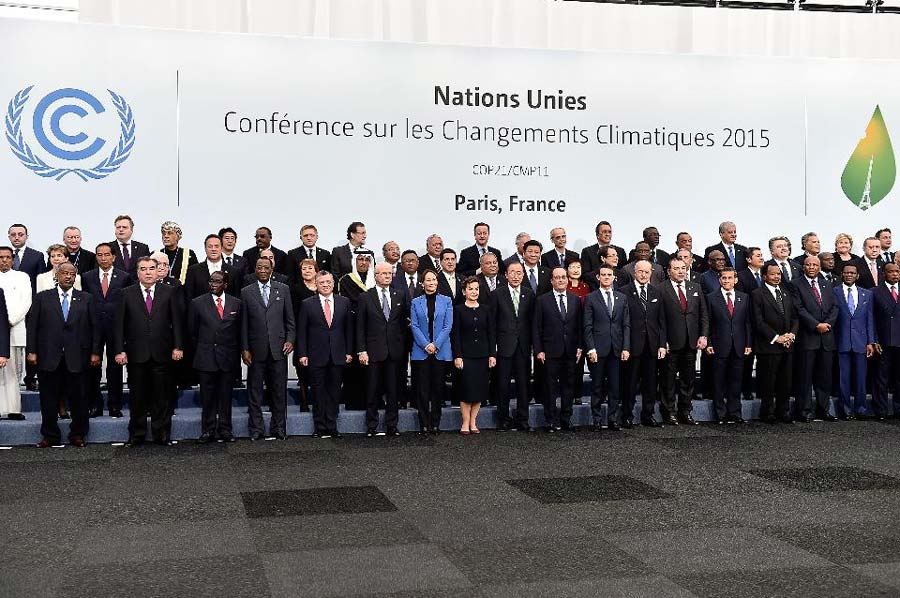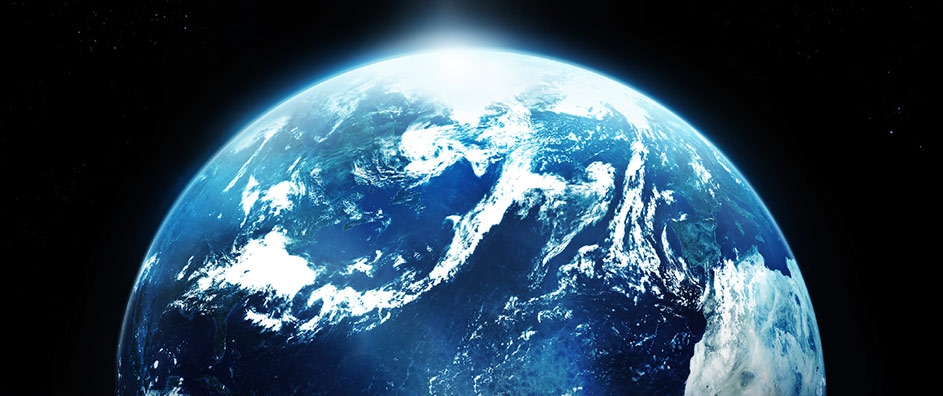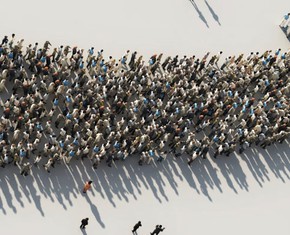The views expressed in our content reflect individual perspectives and do not represent the authoritative views of the Baha'i Faith.
…the sea of grandeur will so overflow its shores, that the narrowest strip of water will grow wide as an endless sea, and every merest drop will be even as the shoreless deep. – Abdu’l-Baha, Selections from the Writings of Abdu’l-Baha, p. 261.
Just for a minute or two, try to imagine a world without ice.
If global warming causes the Greenland and Antarctic ice sheets to melt, the vast bulk—more than 95%–of the world’s fresh water will flow into the ocean. Sea levels would rise more than 200 feet.
We do not want that to happen. It would devastate the majority of the world’s great urban centers; throw entire economies into disarray; and engender storms that would extract a very high cost, not just in terms of disaster relief but in terms of human lives. Far beyond the catastrophic economic impacts, the swelling oceans would swallow many of the greatest accomplishments of human civilization.
Also, rising sea levels would dramatically impact the world’s supply of fresh water. If climate change continues to melt the ice sheets and glaciers in the Polar Regions, as expected, the world’s supply of fresh water would dwindle. Why? Because fresh water from the melting ice sheets and glaciers would run into the oceans, becoming too salty to drink. The increased ocean volume, as it causes sea levels to rise, will then contaminate freshwater sources along coastal regions by turning rivers and streams brackish and salty.
Not only that, those melting ice sheets in Antarctica and Greenland would have devastating effects on the world’s weather. The world’s two huge frozen ice sheets help funnel cold air into the atmosphere, generating the winds that drive clouds and precipitation across the globe. Those ice sheets function, in both winter and summer, as the Earth’s air conditioner. The constant coldness of the ice sheets generates rotating weather systems that circle the globe, causing the precipitation—the rain and the snow—that water the planet.
Without them, prevailing winds will change, and many now-fertile regions of the Earth will wither and die from lack of rain.
What can we do to avert this oncoming destruction, and allow future human beings to have well-lived lives? How can we save our planet for our children and grandchildren, rather than handing them a legacy they will curse us for?
First, Baha’is believe, we can act now, rather than later:
…climate change calls for urgent action, and the dividends of such steps are greater the sooner they are taken. – The Baha’i International Community, Shared Vision and Shared Volition—Choosing Our Global Future, Statement to the Paris Climate Conference, December, 2015.

Second, we can work outside the restrictive and slow-paced confines of our various political and governmental systems, which have consistently underestimated and under-responded to the climate change crisis, by concentrating our efforts on building a globally-shared sense of spiritual vision:
…science, information, and knowledge alone–however vital–will be insufficient to address the concerns of global climate change. Religion, and the values and morals it inculcates, will also be necessary. The capacity to build a shared sense of vision and pursue it through acts of collective volition, to sacrifice for the well-being of the whole, to trust, and to give freely and generously to others will be critical to the work ahead. These will not arise through political expediency or mere environmental pragmatism. Rather, they will need to draw on the deepest sources of human inspiration and motivation. Religious communities and their leaders therefore have an indispensable role to play in the realm of climate change. – The Baha’i International Community, Statement to the U.N. Conference on Climate Change in Lima, Peru, 2008.
Third, we can each make a personal commitment to change our consumption habits:
For ultimately it is individuals who take the initiative to adopt new patterns of action or continue with business as usual. Human behavior and personal decision-making are therefore critical to the success of sustainability efforts, particularly in the sphere of values, ethics, and morals. Such qualities might seem diffuse or somewhat “soft”, but changes in lifestyle will not be sustained if normative drivers of behaviors such as attitudes and beliefs do not shift as well. Consumption habits will not change if acquisition and the ongoing accumulation of luxury goods are seen as powerful symbols of success and importance. Building more sustainable patterns of life will therefore require continuing conversation about human nature and the prerequisites of well-being. – the Baha’i International Community, Shared Vision and Shared Volition—Choosing Our Global Future, Statement to the Paris Climate Conference, December, 2015.
Does material success and the continuing accumulation of luxury goods actually make us happier in the long run, or benefit the world? The Baha’i teachings answer a resounding “No” to that question:
All the prophets of God were poor, His Holiness Moses was a mere shepherd. This will show you that in the estimation of God, poverty is greater than the accumulation of wealth—that the poor are more acceptable than the lazy rich. A rich man who spends his wealth for the poor is praiseworthy. Consider that the poor are not born in a state of solvency; they are not tyrannous. All the tyranny and injustice in this world comes from accumulation. – Abdu’l-Baha, Star of the West, Volume 2, p. 8.
So the next time you’re out shopping, try to think of the material goods you want to buy in a different way. Picture the entire lifecycle of that product, whether it’s a new phone or a new car, and ask yourself two questions: Do I really, really need this, instead of just wanting it? And: What did the manufacturing and the raw material extraction and the shipping and the marketing of this product actually cost humanity in terms of our future?
Next: How Not to Drown in a Sea of Materialism
You May Also Like
Comments

















As a Bahá'í, I believe that it is our duty to protect that planet and all the creatures we share it with. Our desires to industrialise the exploitation of animals for our own selfish gain is contrary to this duty.
This quote from the BIC is found in its 2014 statement here https://goo.gl/EHb6cB , not 2008
…the sea of grandeur will so overflow its shores, that the narrowest strip of water will grow wide as an endless sea, and every merest drop will be even as the shoreless deep. – Abdu’l-Baha, Selections from the Writings of Abdu’l-Baha, p. 261.